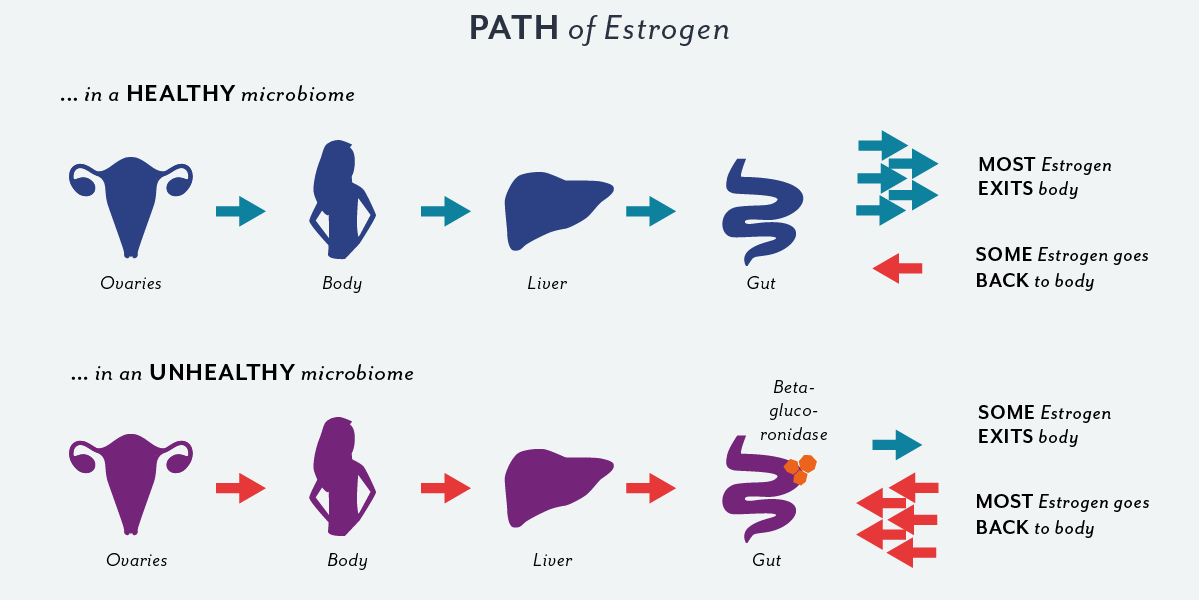How your gut affects your hormones

Just when you think you understand hormones, you learn something new. Did you know the hormones that regulate your menstrual cycle are influenced by your gut? Your intestinal bacteria (and their genes), called the microbiome, have so many important functions for your body that some scientists refer to it as a “virtual organ” (1).
The microbiome synthesizes nutrients and assists with digestion. It releases chemicals that regulate mood and metabolism and immune function, and if all that wasn’t enough, it also helps to control the level of estrogen.
Fun fact: The subset of the microbiome involved with estrogen metabolism is called the estrobolome.
How the microbiome affects estrogen
Estrogen is made primarily by your ovaries. It then circulates through your body to your uterus and breasts and other organs, until it reaches your liver where it’s inactivated. Inactivated estrogen is then sent to the intestine where it is supposed to stay inactivated so it can exit the body through the stool. That is normal, healthy estrogen metabolism.
When certain intestinal bacteria are present, something very different happens. Unfriendly bacteria make an enzyme called beta-glucuronidase, which re-activates estrogen in your gut. That’s a problem because re-activated estrogen then re-enters your body and causes excess estrogen. That is impaired estrogen metabolism.
Fun fact: An unhealthy microbiome is called dysbiosis.
The problem with excess estrogen
In my practice, I observe that too much estrogen can make periods heavier. It also contributes to the long-term risk of conditions such as uterine fibroids and breast cancer (2).

How to improve estrogen metabolism through your gut
Fortunately, there are ways to improve the health of the microbiome and to, therefore, promote the healthy metabolism of estrogen.
- Eat more vegetables. Fiber promotes a healthy microbiome and decreases the activity of the microbial enzyme beta-glucuronidase (3).
- Reduce alcohol consumption. Chronic alcohol consumption alters the microbiome leading to higher activity of beta-glucuronidase and higher levels of estrogen metabolites. Researchers think that alcohol’s effect on the microbiome is one way that it increases the risk of breast cancer (2).
- Take a probiotic. In one study, oral supplementation of Lactobacillus acidophilus decreased the activity of beta-glucuronidase (4).
Lara Briden is a naturopathic doctor with 20 years of experience in women’s health. Her book is Period Repair Manual: Natural Treatment for Better Hormones and Better Periods. Follow her on Twitter and Instagram @larabriden.